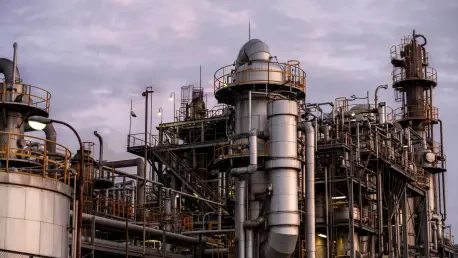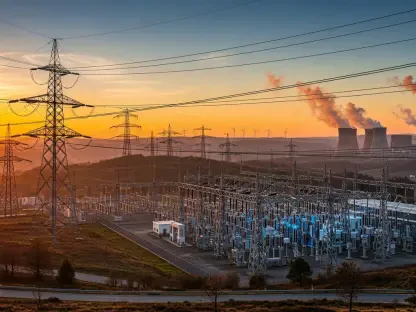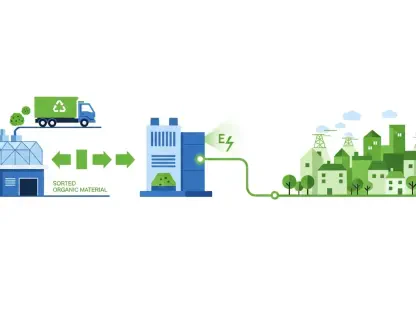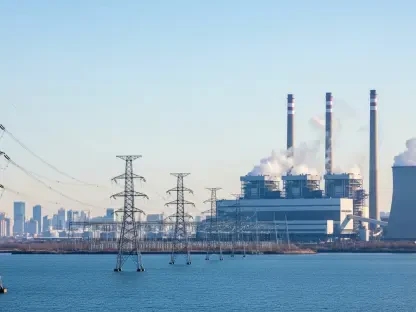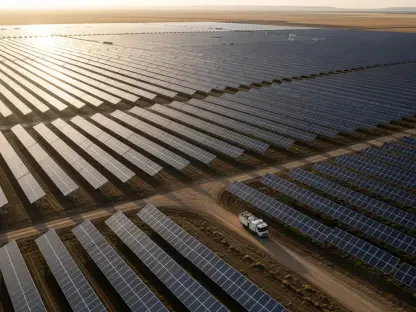It’s becoming clear that disruptions in Israeli gas supplies could set off a chain reaction impacting Egypt’s energy stability. This unforeseen scenario arises from the political tensions affecting the flow of gas, which is pivotal for Egypt’s energy infrastructure. As natural gas supply shocks ripple across borders, Egypt faces critical questions about maintaining its energy needs.
The unexpected reduction in natural gas imports from Israel has initiated significant implications for Egypt’s energy landscape. Since 2022, Israel’s gas imports have played a crucial role in Egypt’s energy mix, forming a substantial part of the country’s consumption. While Leviathan and Karish gas fields are currently closed, Egypt encounters new hurdles in ensuring a consistent energy supply to sustain its industries.
An Unraveling Geopolitical Tapestry
The backdrop to this energy challenge is a complex geopolitical landscape. Israel’s military actions aimed at Iranian facilities inadvertently triggered a pause in gas production from some of their significant fields. These actions have thrust Egypt into a predicament, deeply reliant on these gas imports since Israeli supplies account for a significant percentage of Egypt’s energy needs. The ramifications of such geopolitical skirmishes on regional stability can’t be overlooked.
As Egypt grapples with this sudden shift, the strategic interdependencies between nations become starkly evident. The reliance on Israeli gas has made Egypt vulnerable to such geopolitical fluctuations. About 40-60% of its gas imports and 15-20% of domestic consumption stem from Israel, highlighting the core of this emerging energy conundrum.
Ripples Through Egypt’s Energy Sector
The closure of the Leviathan and Karish fields severely impacts Egypt’s industrial operations. Natural gas is imperative for Egypt’s fertilizer production, among other sectors, which now face disruptions in their supply chains. The demands on natural gas call for an immediate and effective allocation strategy. Efforts to offset deficits by shifting to alternatives like fuel oil and diesel in power stations are already underway to mitigate energy shortcomings.
Egypt’s response highlights its vulnerability and reliance on Israeli energy imports, urging a reconsideration of its energy strategy. The shock underscores a critical need for diversification in energy sources, guarding against similar future risks posed by external geopolitical actions.
Insights from Thought Leaders
Comments from Energy Minister Karim Badawi and Prime Minister Mostafa Madbouly reveal the deep-seated concerns within Egypt’s government. Badawi has candidly outlined the necessary strategic decisions being evaluated, emphasizing how crucial it is to stabilize the energy sector amidst this turbulence. He acknowledges the ongoing efforts to procure alternative energy resources and tactics Egypt must explore.
Prime Minister Mostafa Madbouly has consistently monitored the scenario, ensuring that the government’s steps are both thorough and forward-thinking. His leadership in negotiating additional gas contracts and stockpiling fuel oil highlights an adaptive approach to the situation. Ministerial testimonies further paint a picture of the uncertainty faced and the necessary focus on securing energy resilience.
Strategic Forward-Thinking
Egypt’s emergency response involves exploring various strategic adjustments to confront this crisis. New contract negotiations aim to secure increased gas shipments, reflecting a broader strategy involving regasification enhancements. Floating Storage and Regasification Units (FSRUs) are slated to be a pivotal aspect of Egypt’s resilience framework, alongside increasing reserves.
Stockpiling and alternate energy sources serve as vital measures to uphold stability against the unforeseen. The Petroleum Ministry’s proactive stance on altering contracts and drawing upon diverse energy sources signifies a comprehensive approach to buffer the impact of unexpected supply interruptions.
Re-Envisioning Future Energy Pathways
This crisis underscores the pressing necessity for Egypt to reevaluate its reliance on imported energy, taking steps toward a more resilient and diverse energy strategy. Countries vulnerable to cross-border geopolitical tensions must prepare for such contingencies. Past crises have illustrated that strategic foresight, stockpiling, and regasification advancements possess merits in stabilizing national energy supplies. This complex scenario illuminates the underlying vulnerabilities in Egypt’s energy framework and highlights the interconnected nature of regional energy dynamics.
